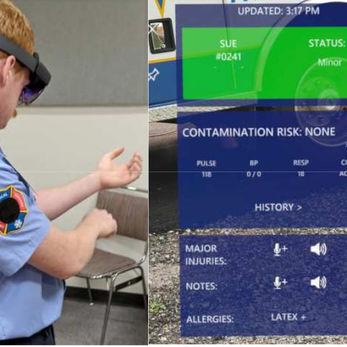More about my research
Using augmented reality, human-centered design, and serious games, my interdisciplinary research tackles real-world human-computer interaction challenges in emergency response, rehabilitation, education, and bias reduction. I have published work on designing AR interfaces for high-intensity scenarios, pedagogy for AR learning games, and future directions for AR rehabilitation games.
My dissertation delves into user-centered design of an augmented reality (AR) tool suite for mass casualty incident triage and further assesses the influence of implicit racial bias on triage accuracy in mass casualty incidents. Many AR-supported tasks facilitate human-to-human interactions. We measured performance and bias with both diverse virtual and 'real' patients (actors). This work has methodological implications for future studies and simulations concerning study stimuli for human-to-human supported tasks. Future intended work will explore bias-busting AR experiences and live-cueing to mitigate bias in real-time.
While working on this project, I am just beginning a project to understand the role of using VR and game tasks to quietly facilitate and obfuscate physical performance evaluations without making patients self-conscious or giving them an opportunity to malinger.
Interests:
-
Augmented Reality
-
Serious Games
-
Human-Centered Computing
-
Learning
-
Human-Computer Interaction
-
Usability Engineering
-
Training
-
Engineering Education
-
Gamification
Places to Publish:
-
TVCG
-
ISMAR or IEEEVR
-
HFES
-
DiGRA
-
JMIR
-
CHI or CHI Play
Prospective Funding Agencies:
-
HCC, DRL, & EDU NSF Directorates
-
NSF Career Award
-
NIH (General Medical Sciences)
-
U.S. Department of Education






